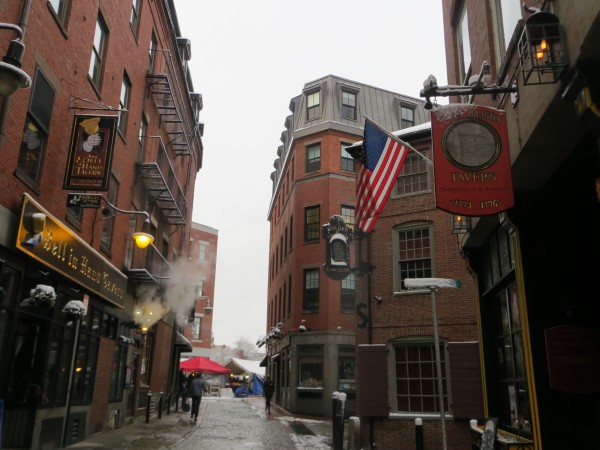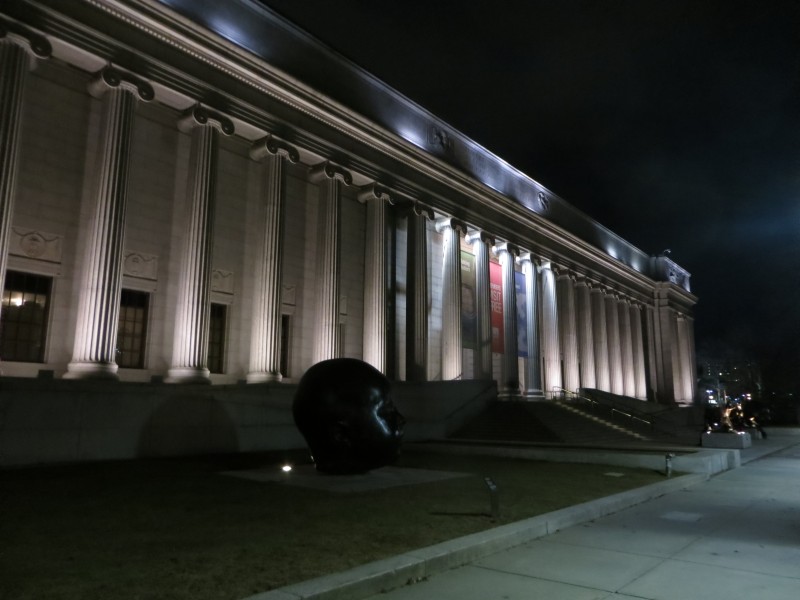A Job Shadow Field Report

Internship and job opportunities over the summer or during the semester can be a great way to gain work experience, but you can also gain valuable insight into fields that interest you during short school breaks! I recently completed a two-day spring break job shadow at the Huntington Theatre Company in Boston, and thought I’d share a few reflections and recommendations on this excellent resource that Kenyon offers.
So, what's a job shadow?
Job shadows can take many shapes depending on the field and your particular goals for the experience, but the key difference between a job shadow and an internship is that you are shadowing, or observing, rather than working hands-on. Job shadows tend to take place over a short period of a few days and allow students to observe one or more employees going through their daily work routines. This can be a great opportunity to see firsthand what a career of interest looks like in practice and discover how it might compare to your expectations of the job or to experiences you may have had in a past course or internship.
At Kenyon, the Career Development Office (CDO) is eager to help students set up job shadows with alumni. After attending a job shadow talk held by the CDO, I searched through their extensive spreadsheet of alumni contacts and found a few people working with theater companies (to match my interests as a drama major) in regions I could feasibly travel to during a break. The CDO helped me reach out to several candidates, and we found one happy to have me shadow during Kenyon’s spring break. Here are a few tips that proved valuable in making the most of my visit:
Come Prepared
Being an active observer is crucial to getting the most out of your experience. I was shadowing in the literary department (which works on developing and researching new plays for the theater company) and spent much of my first day sitting in on an early rehearsal for an upcoming production. This gave me the opportunity to observe the research being done by the literary department as well as the proceedings of the rehearsal itself. As an aspiring director, I was very glad I had brought a notepad to help me remember the details of this experience and how a professional rehearsal room compared to productions I’ve worked on at Kenyon. I was also eager to jot down recommendations of other training programs or internship opportunities that professionals I met brought up. It can also be a good idea to bring a book to read, so that your hosts don’t feel obligated to keep you entertained constantly if they have to take a phone call or answer some emails.
That said, when it is a good time to talk, make the most of the incredible resources around you! Job shadows tend to be fairly flexible, so your host will likely look to you to guide the conversation and help them tailor the experience to your personal interests and goals. I found more casual interactions, such as lunch breaks and walks between rooms or buildings, to be a fantastic opportunity to ask about parts of my hosts’ jobs that I didn’t get to see and to learn more about their journey to finding those jobs.
Seek Out Variety
If you can, take advantage of the chance to talk to a variety of people with different positions within your field of interest. I was shadowing two Kenyon alums working in the literary department, but I also had the opportunity to talk to someone in the casting department, as well as meeting some actors and directors during the rehearsals I observed. I found it very helpful to see how each position complemented the others and to hear diverse perspectives from people working on different aspects of the same projects, as well observing a couple of entirely different projects.
My spring break schedule was relatively flexible when I was planning my shadow over the winter, so I asked my host which part of the week would be the best time to visit. We settled on the end of the week, as that allowed me to see a wider variety of activities. One production had just begun rehearsals and was in the early phases of tablework, or discussion between the director and cast before staging begins, while another was having its final dress rehearsal prior to beginning previews. Meanwhile, I found the casting department already hard at work planning auditions for next season, and the literary department finding time to start reading submissions for a summer playwriting workshop.
Look Beyond the Job
I live in New Jersey, but I did a job shadow in Boston. I chose this option partially because the company and positions I was shadowing were a good fit for my interests, but also because I was curious to familiarize myself with an area where I might consider living in the future. My job shadow provided me a great opportunity to scope out the neighborhoods near the company and to hear how young employees liked living there. If you have the chance, I’d recommend leaving yourself a little extra time before or after your shadow to explore the area. I discovered the Boston Museum of Fine Arts — just down the street from the company I shadowed — offered free admission on the evening I arrived, and spent my last afternoon sight-seeing and enjoying some local seafood.

The Boston Museum of Fine Arts.
